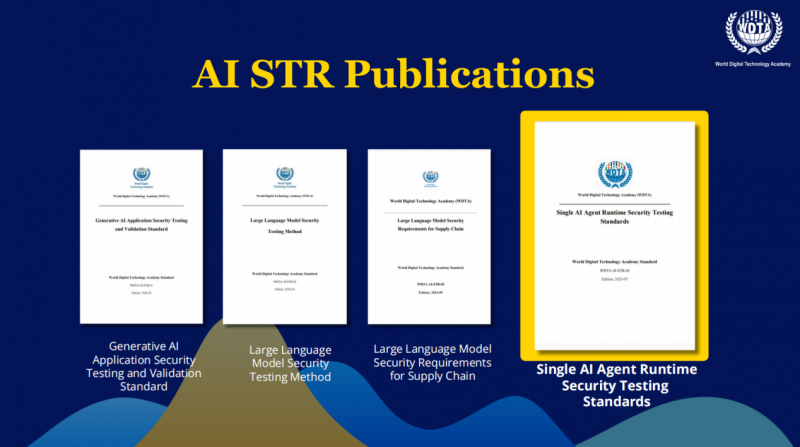New WDTA Standard Aims to Rein in AI Agent Risks Ahead of Adoption Surge
GENEVA, July 11 – At a “Global Consultation on the Social Aspects of Digital Technologies and AI” jointly hosted by the United Nations Research Institute for Social Development (UNRISD) and the World Digital Technology Academy (WDTA) at UN headquarters in Geneva, WDTA unveiled its new AI STR Series: Single AI Agent Ru

ntime Security Testing Standards.
Speaking at the event, vice-chair of UN Commission on Science and Technology for Development (CSTD) and Honorary Chairman of WDTA Peter Major said: “Fair data governance and the integration of AI safety with ethics and social values are key to promoting global sustainable development. Facing the future of digital technologies, we urgently need robust legal systems, collaborative frameworks, and technical standards so that technological fairness drives sustainable development.”
“2025 has seen AI agents proliferate across content creation, knowledge retrieval, workflow automation, and beyond,” said Prof. Yale Li, Executive Chairman of WDTA . “But their deployment has been shadowed by mounting security concerns. These standards aim to put a ‘safety belt’ on the rapidly advancing AI agent ecosystem.”
Prof. Li added that the framework is designed to address risks in industries such as autonomous driving, healthcare, manufacturing, and finance, among others.
This marks the fourth installment in WDTA’s AI STR (Safety, Trust, Responsibility) certification suite. Earlier releases include safety test protocols for Generative AI Application Security Testing and Validation Standard, Large Language Model Security Testing Method, and Large Language Model Security Requirements for Supply Chain.
“Once new technologies are embedded in society, governance becomes exponentially harder—this is the Kolingridge dilemma,” Prof. Li said. “By defining clear, enforceable testing and certification ahead of that threshold, we embed ethics and responsibility into every lifecycle stage of AI.”
Drawing on a globally representative task force spanning Asia, Europe and North America, AI STR emphasizes not just risk assessment, but full lifecycle management: from data governance and model deployment to automated testing tools and certification procedures.
Pilot certifications are already underway in finance and healthcare. WDTA plans to extend implementation across the AsiaPacific region next.
As a contributor to the UN’s Global Digital Compact, Peter says this new standard is a critical step toward supporting secure, ethical AI deployment worldwide.
